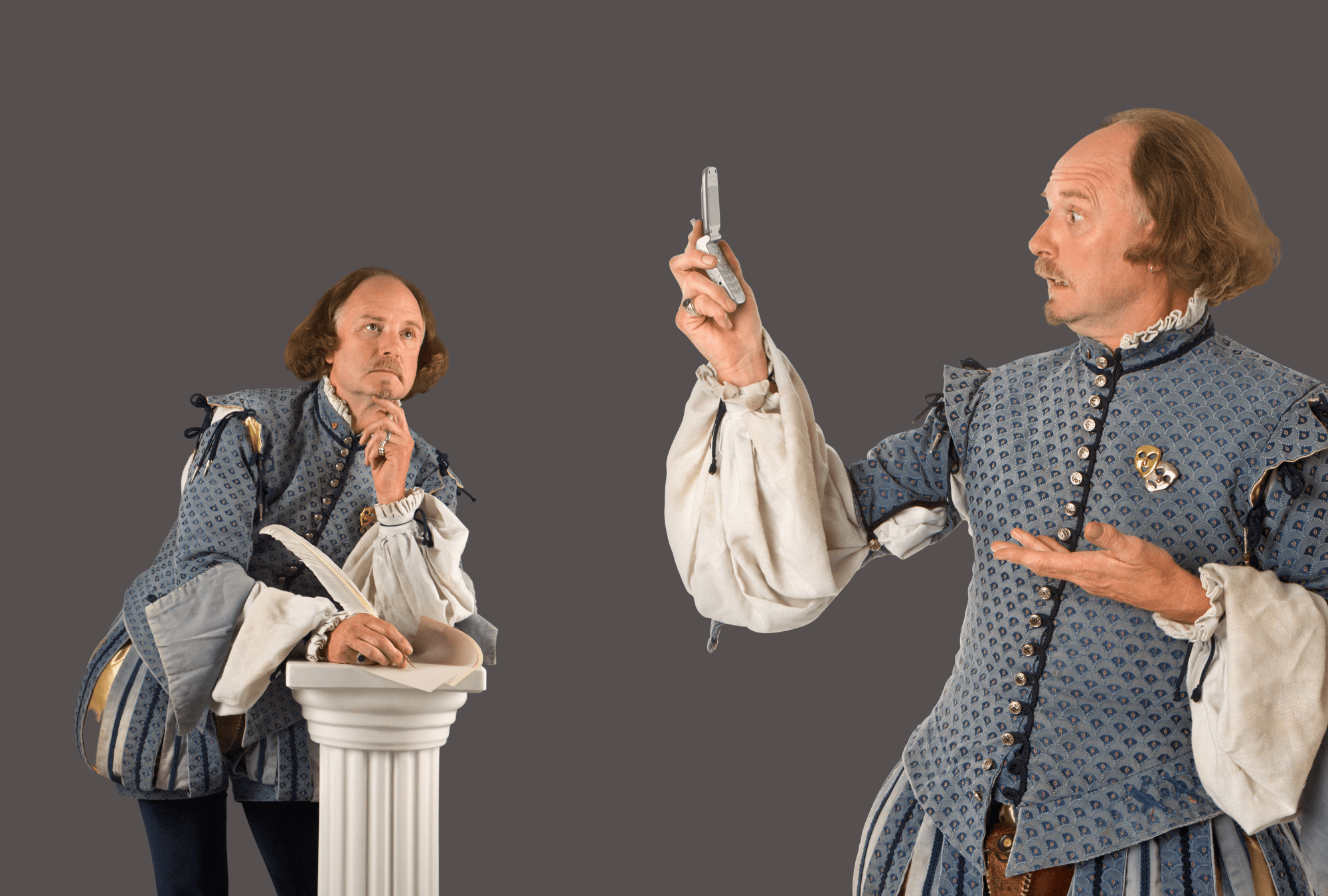
There is no better way to enjoy one of Shakespeare’s texts than actually going to watch a theatrical performance. The entertaining drama, vibrant atmosphere, and the foolery of hilarious characters! Social distancing or a cast member being called out sick didn’t worry anybody.
Students lament and complain but there is no avoiding ye olde English as Shakespeare’s plays occupy a crucial part of all IGCSE Literature curriculums. Unknown to most (young ’uns especially), we actually wouldn’t be able to imagine popular culture without them either.
We’re looking at Othello this year as it is one of the core texts for 0475 IGCSE Literature.
On the surface, Othello appears from a different era with unique cultural and historical references. However, its themes and references to the human condition are universal, transcending time. Don’t take our word for it though, read on to see just how long-standing a relationship we have with much of Shakespeare. If reading the play seems like a struggle, immerse yourself in the beauty of his distinctive writing style. And, let’s face it a more appealing option – watch a film.
Why watch a movie?
Of course, we’re not telling you to watch a movie and skip the play totally – you must read the play first! While traditionalists may not fully agree, there are so many benefits to watching a movie too. Approach a play in every format possible to gain complete appreciation.
Shakespeare’s texts are timeless and can and have transcended the dimensions of time and space. Seamlessly molding its commentary and application to any culture. Different settings enable us to witness various perspectives of the same characters and themes.
Films also help to keep classic texts relevant to younger audiences. Trust us, you will always be able to identify and relate to what seems old-fashioned once you can see its relevance to contemporary life.
We’ve found a few film adaptations of Othello as it’s one of the most popular core texts for 0475 IGCSE Literature. A plotline that epitomizes tragedy, let’s take a look at these films which give refreshing perspectives through shifts in setting, plot, and language. Some even add unexpected elements of surprise.
A Double Life (1947)
A classic example of a play-within-a-play is the American film, A Double Life (1947). It revolves around theatre actor Tony John, who’s offered the role of Othello and cast opposite his ex-wife, Brita, for the role of Desdemona.

This seems harmless until Brita warns the team about Tony’s harmful obsession, blurring fantasy and reality. As the film progresses, Tony becomes consumed by the role and unintentionally murders his mistress. This mirrors the scene in “Kiss of Death,” unraveling the tragedy from start to finish.
The actors in the film Ronald Colman and Signe Hasso are applauded for their brilliant performances in their respective roles. Having won several awards including the Golden Globe Award for Best Actor, this movie is a great film to watch at the beginning of your IGCSE exam preparation.
All Night Long (1962)
A British adaptation of the British play, All Night Long (1962) incorporates the world of jazz in London in the 1960s. Celebrated musician Aurelius Rex is in a happy marriage with his young wife Delia, who’s also a retired singer.

Throughout an eventful evening, the Iago of this film, Johnny Cash, attempts to cause a misunderstanding between the happy pair. Johnny Cash gets Rex to believe that his wife is cheating on him with the band’s manager, Cass. Why does Johnny Cash do that? Because she turned down his offer to resume her career and join his band. Anyhow, he’s almost successful in getting Delia choked to death by Rex, but his wife reaches in time to save her. Thus revealing her husband’s evil machinations.
The film has a relatively bittersweet ending – we won’t reveal any spoilers here. But, the musical aspect is what makes the movie interesting to watch. This film also stars jazz legends such as Tubby Hayes and Charles Mingus.
Omkara (2006)
There’s always a Bollywood version of everything. Bollywood, being a version of Hollywood itself, has its take on Othello. Vishal Bhardwaj’s Omkara explores the lower caste-upper caste angle set in the wild, hinterland regions of Uttar Pradesh. Soon, casteism, thugs, and politics pull us into a web, and all hell breaks loose.

The film’s Iago, Ishwar Tyagi, plots against ruining Omkara and Dolly (Othello and Desdemona) as he gets rejected over Kesu (Cassio) in the upcoming state elections. Omkara, due to his lower-caste-based insecurity, quickly doubts his wife’s loyalty and chokes her to death when he’s made to believe that she’s having an affair with Kesu.
Having Ajay Devgan play the lead, and Kareena Kapoor as Desdemona, the film gives you a glimpse of Othello set against a rural, rustic backdrop. Despite the catchy Hindi songs and dramatic, indigenous dialogues, the film stays true to the original essence of the Shakespearean tragedy.
O (2001)
This modern, glamorized portrayal of Othello is clothed with classic teenage drama. It throws light on adolescent emotions like jealousy and vengeance that arise in any high school setting but with a dark, twisted turn of fate. Odin James, the basketball player, falls in love with Desi Brabble, the most popular girl in high school.

Our supervillain Iago happens to be his best friend Hugo whose father, the basketball coach, favours Odin over him. Hugo leads Odin to believe that Desi and Michael (another team player) are cheating on him, and this eventually leads to a series of murders and a lot of guilt in the end.
This movie doesn’t use original play dialogue; it’s adapted into upper-class high school language. While the adaptation exaggerates Hugo’s emotions in the context of basketball compared to Othello’s politics, it sheds light on teenage violence post-Columbine. Notable for the lead’s acting, it portrays Hugo as more psychotic than Iago, evoking pity at times.
Other Movies
There are many more adaptations like Othello (1995), Souli, a Malagasy film, and Iago, an Italian teen drama film, which have been modified in terms of language and plot. Souli, in particular, is a feature film that was screened at the Paris Film Festival. It throws light on the native African poetic tradition (oral tradition, bard). Apart from these, there are many more films as well as plays that enact Shakespeare’s Othello.
Apart from film versions, you will find many plays on the web too. If you want to see how actors performed the original Othello, you can go online and find many filmed plays.
You can never watch too many versions – even though films are based on the same plot, they all uniquely capture the essence of Othello. It’s very interesting to see the same characters played by different actors who bring their charm to the role. If the thought of studying Othello seems dull, watching one of these movies will add surprising joy! It’ll encourage you to revisit the text itself and connect how the playwright’s vision is interpreted and portrayed through different lenses.
On another note, you might start to notice that the Bard wasn’t as clueless as you may have thought. Look out for those Iago’s lurking around the school canteen, and be sure to treat your Desdemona with the trust and respect she deserves!











